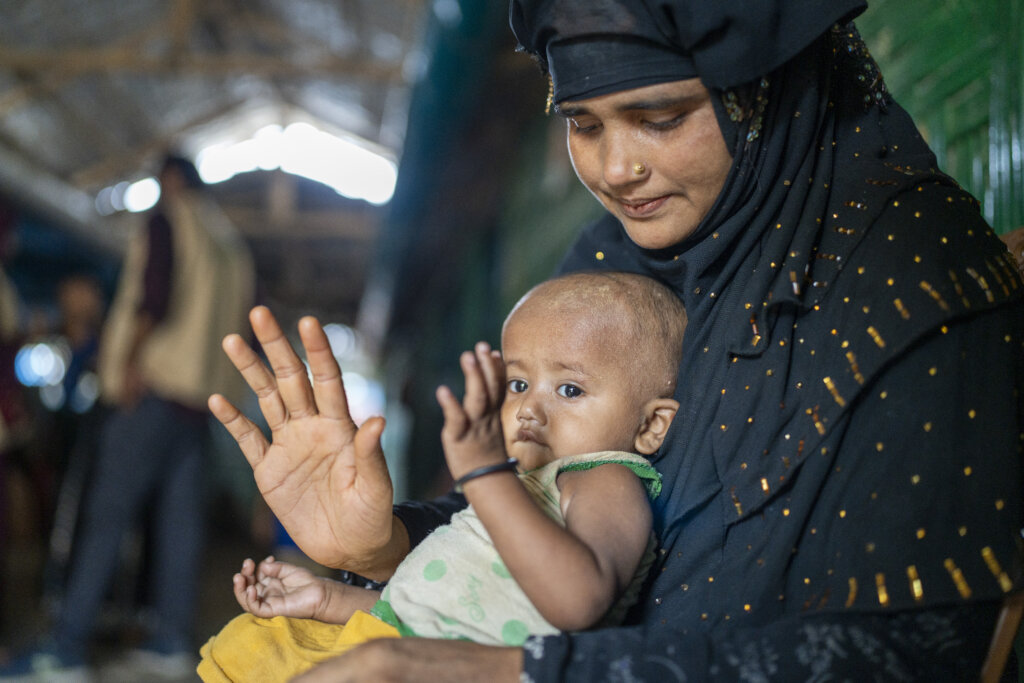By Alexa Duryea | Development Coordinator, Concern Worldwide US
The Rohingya are widely recognized as one of the most persecuted minority groups globally. Historically tied to the land within Myanmar, they have been rendered stateless, stripped of citizenship and the accompanying rights to employment, education, healthcare, and essential social services. This systemic denial of rights has been compounded by decades of targeted violence against them. The situation reached a critical juncture in 2017, when a surge of brutal attacks forced a mass exodus, prompting one of the largest movements of people in Asia since the Vietnam War.
In just the first three weeks of the violence, over half a million Rohingya fled to Bangladesh, leading to the establishment of approximately 30 refugee camps across Cox’s Bazar. This region now hosts the largest refugee resettlement effort globally. Initially designed as a temporary response to an urgent crisis, these camps have evolved into a sprawling settlement, characterized by inadequate infrastructure due to the rapidity of their establishment. This lack of development reflects a broader failure of the international community to adequately address the multifaceted dimensions of the crisis.
Due to the urgent and evolving nature of emergencies, refugee situations often receive ad hoc management that is tailored to the specific circumstances of each crisis. While this approach is necessary, it has resulted in insufficient long-term planning and support for the Rohingya, leaving them heavily dependent on humanitarian aid and vulnerable to seasonal threats. The shelters within the camps--primarily constructed from bamboo and tarpaulins—are particularly susceptible to environmental challenges. As temperature and sea levels rise in the region, Bangladesh is experiencing escalated threats of flooding. The country’s geographical characteristics make it extremely susceptible to severe flooding for several reasons. One being it sits upon a river delta that lies beneath the Himalayas, which has become an increasing flood risk due to the additional snow melt. Along with the previously mentioned rising sea levels, climate change has resulted in a longer and more intense monsoon season. As Bangladesh approaches the end of its monsoon season, which spans from July to October, the region has experienced unprecedented flooding, resulting in devasting flash floods and landslides that have further compromised the already precarious living conditions in the camps. Resulting in families being forced to relive the devasting irony of seeking refuge within a refugee camp each year.
Luckily, Concern has been actively engaged in Bangladesh for over 50 years, meaning we are no stranger to responding to emergencies in a high flood-risk environment. In the camps, we have implemented a robust acute malnutrition treatment program. Over the past year, we successfully enrolled more than 90,000 individuals supported by 11 nutrition centers across seven camps. Sustaining this program is crucial for the flood response in the refugee settlement, as flooding not only destroys shelters but also devastates food supplies, kitchen appliances, and access to clean water. Additionally, we have reached approximately 126,000 people within the host community, focused on fostering sustainable community development. Mitigation efforts that seek to move resources above sea level and strengthen early warning systems are imperative to minimizing the devastating strain put on the Rohingya population. These measures include, raising homes, livestock pens, and drinking water sources above flood levels, planting stands of protective trees around homesteads, and re-enforcing flood barriers at key locations. Our team is working tirelessly with the communities to make these necessary efforts a long-lasting reality. However, as the floods continue to increase so does the need for international and donor support for true relief to be achieved.
Project reports on GlobalGiving are posted directly to globalgiving.org by Project Leaders as they are completed, generally every 3-4 months. To protect the integrity of these documents, GlobalGiving does not alter them; therefore you may find some language or formatting issues.
If you donate to this project or have donated to this project, you can receive an email when this project posts a report. You can also subscribe for reports without donating.
Support this important cause by creating a personalized fundraising page.
Start a Fundraiser